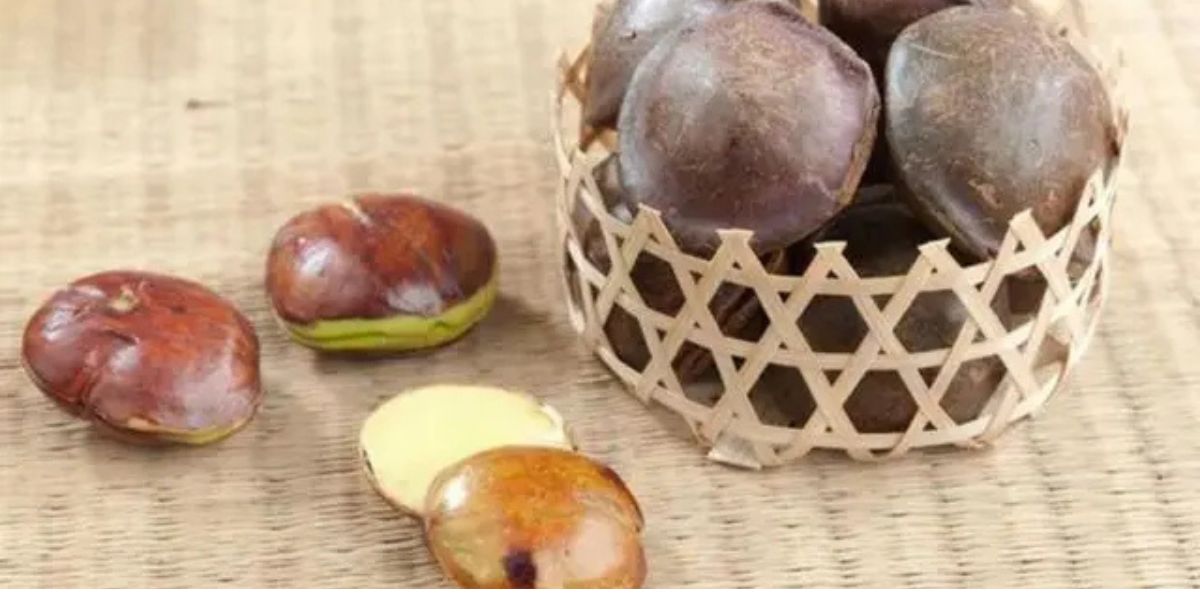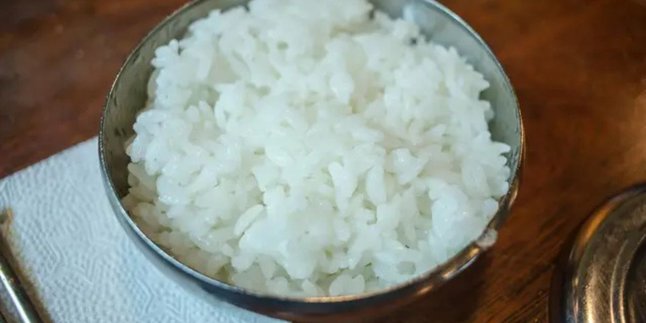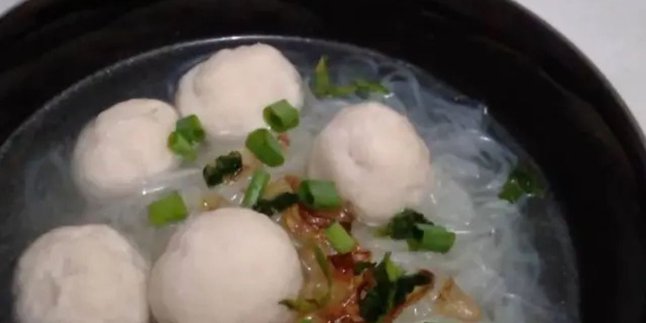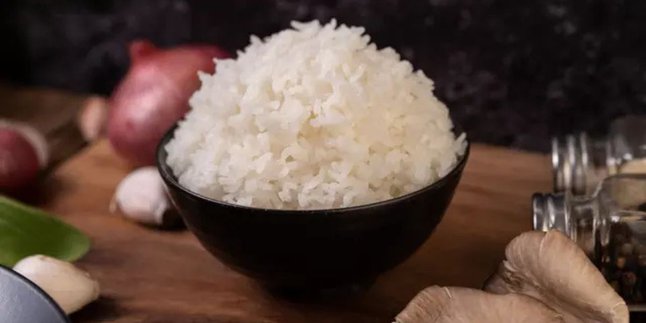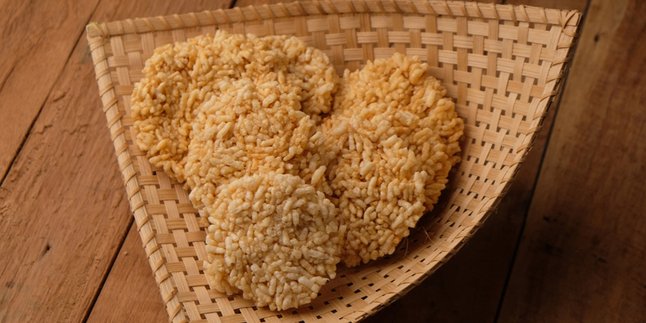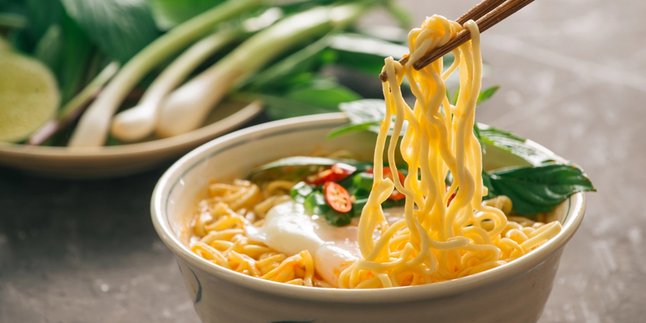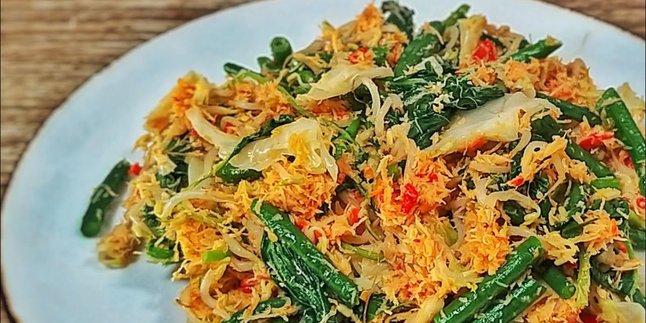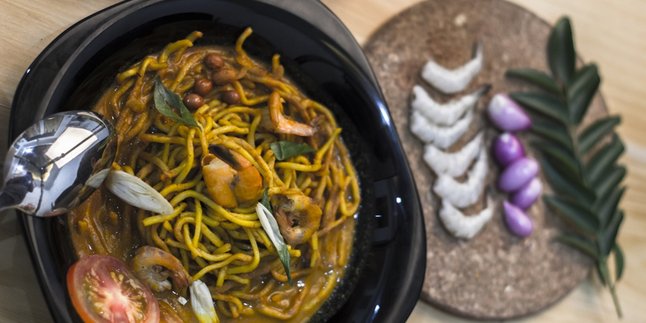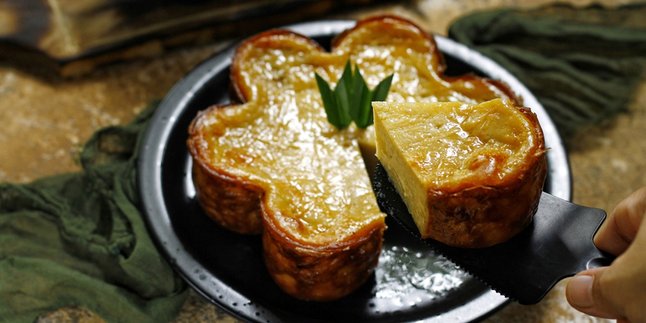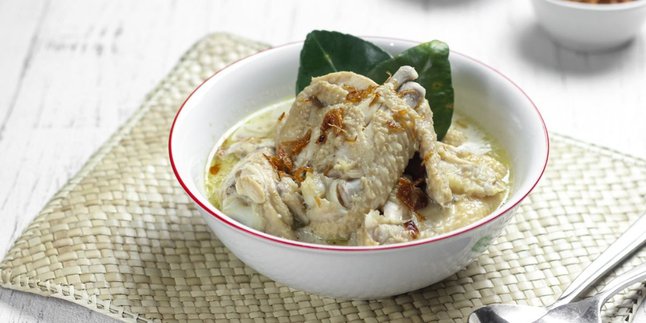Kapanlagi.com - Who doesn't know jengkol? This traditional food is indeed a favorite for many people, but the processing often presents its own challenges. Its chewy texture and strong aroma can diminish the enjoyment when eating it. But don't worry! There is an easy way to make jengkol tender and odor-free without the hassle of using a pressure cooker.
Summarized from KapanLagi.com from the YouTube account Yu Sitie Channel on Thursday, (13/3/2025), this article will share effective tips so you can boil jengkol in just 30 minutes! The secret lies in adding simple ingredients like coffee and bay leaves. Curious how? Let's check out the complete tricks below and enjoy jengkol without the fuss!
1. Why Jengkol Must Be Processed Properly?
Jengkol, the king of odor that often makes people hesitant to cook it, actually holds incredible flavor potential if processed with the right technique. Its hard texture and difficulty in chewing when boiled carelessly can make the experience of enjoying jengkol less pleasant.
However, don't let its pungent aroma deter your intentions. With the proper processing, jengkol can transform into a tender and appetizing dish. Unfortunately, many retreat just because of the challenge in conquering this jengkol. Come on, are you brave enough to try?
2. How to Boil Jengkol Without a Pressure Cooker to Make It Tender Quickly
Now, you can process jengkol without worrying about its pungent aroma bothering you. Just boil jengkol in boiling water for 15 minutes, add one tablespoon of ground coffee and four bay leaves for optimal results.
After that, drain and rinse the jengkol until clean before proceeding with the next boiling process. Get ready to enjoy delicious jengkol without the disturbing smell!
3. The Benefits of Coffee and Bay Leaves in Processing Jengkol
Coffee and bay leaves turn out to be a powerhouse duo that can save the experience of enjoying jengkol! Coffee, with its extraordinary ability, can eliminate the pungent smell of jengkol, while bay leaves function as a neutralizer of unpleasant odors.
The result? Jengkol that is more delicious and appetizing, without the worry of the 'intoxicated' effects that often accompany it. With this magical combination, you can enjoy jengkol more delightfully and without any anxiety!
4. Steps to Boil Jengkol to Eliminate Odor
Here’s a simple way to boil delicious jengkol:
- First, boil water until it is bubbling before adding the jengkol to it.
- Next, add one tablespoon of ground coffee and four bay leaves to provide an enticing aroma. Boil the jengkol for 15 minutes over medium heat while tightly covering the pot.
- After that, drain and rinse the jengkol until clean, then boil again with fresh water and fresh bay leaves.
Get ready to enjoy tender and delicious jengkol!
5. Boiled Jengkol With 1 Tablespoon of Ground Coffee and 4 Leaves of Bay Leaf
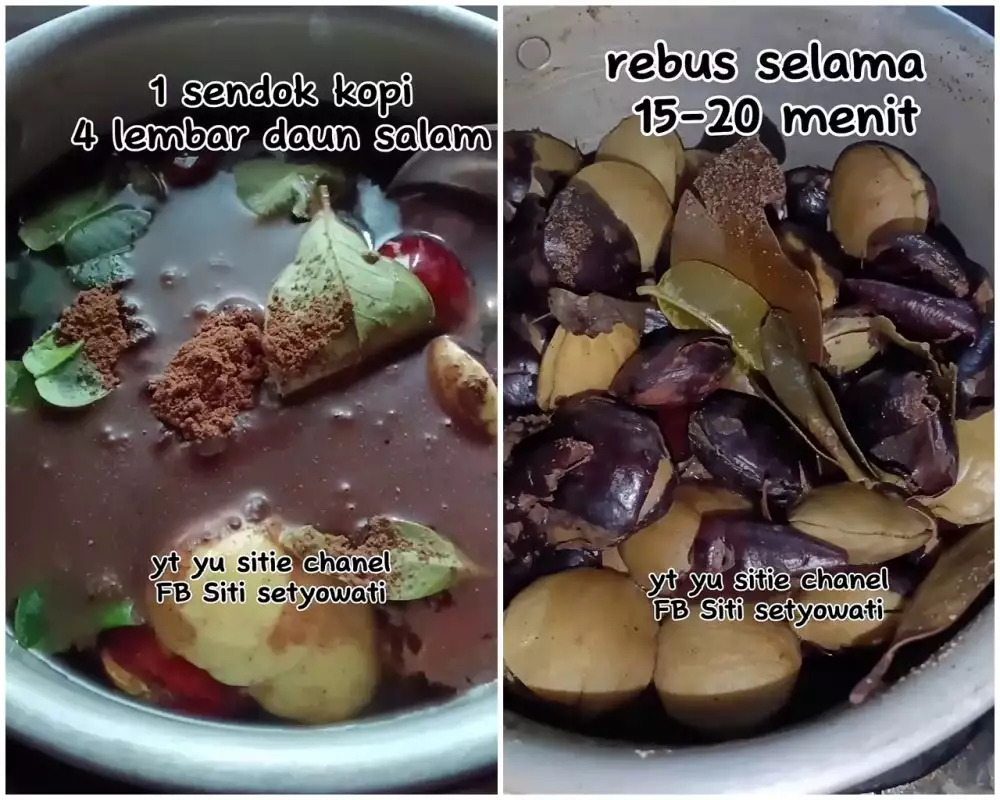
Photo: YouTube/yu sitie chanel.
In the first stage of boiling, we will tackle the pungent odor that often clings to jengkol. In this process, coffee acts as an absorber of the characteristic jengkol smell, while bay leaves add a touch of enticing aroma. With this combination, jengkol is ready to be served without worrying about disturbing smells!
6. Drain the Jengkol and Rinse Until Clean Before Boiling Again
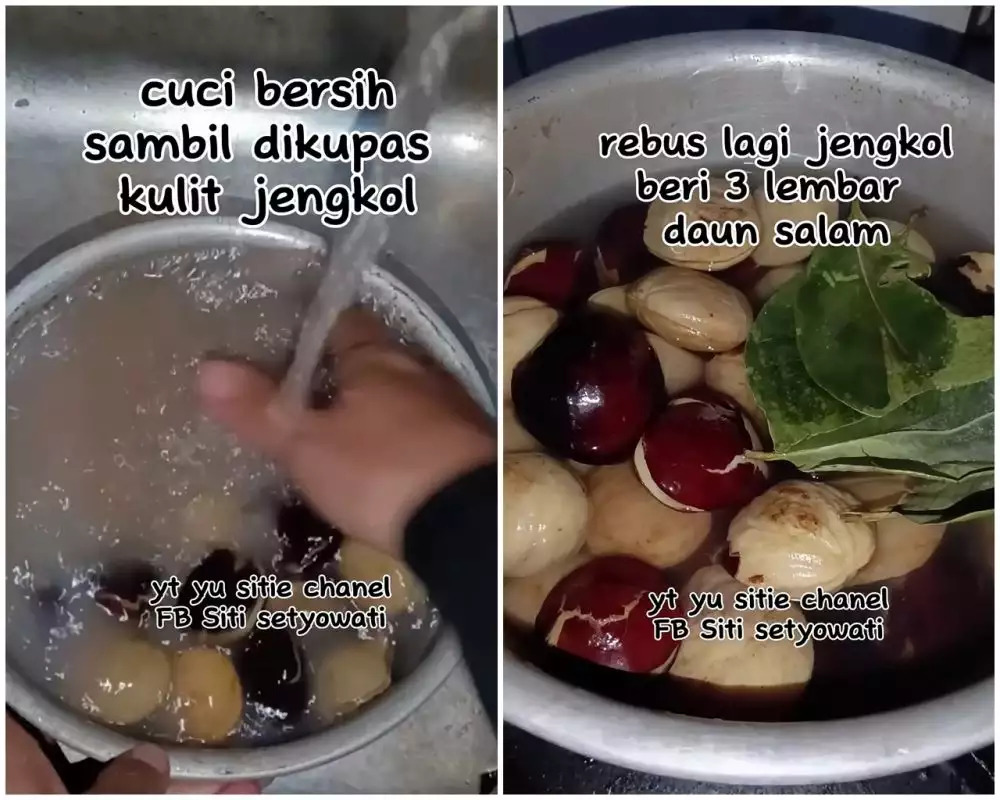
Photo: YouTube/yu sitie channel.
After draining the jengkol, rinse it under running water until all traces of coffee grounds are gone. Then, transfer the jengkol to a clean pot and add fresh water. In this second stage, boil the jengkol for 15 minutes while adding the fresh aroma of new bay leaves, making the dish even more tempting!
7. Common Mistakes Made When Processing Jengkol
Many people often get caught in mistakes when processing jengkol, such as boiling it without adding ingredients that can neutralize its distinctive smell. In addition, using too high a flame can cause the jengkol to cook unevenly, and not rinsing it after the first boiling will actually retain the pungent aroma. To achieve perfect and delicious results, it is very important to follow the correct steps in processing jengkol.
8. Alternative Natural Ingredients to Eliminate Jengkol Odor
Don’t have coffee or bay leaves? Don’t worry! There are many other natural ingredients you can use to soak jengkol before boiling.
Try mixing salt and lime water, two effective choices to reduce its bitterness. For a fresher aroma, add kaffir lime leaves and lemongrass to your soak. And if the sharp jengkol smell is a problem, milk can be a great solution to neutralize it. Happy trying!
9. How to Process Jengkol After Boiling for Even More Deliciousness
After boiling, jengkol is ready to transform into a variety of tempting dishes that will delight your taste buds! One of the most popular ways is to fry or sauté it with special seasonings that stimulate the appetite.
Not only that, but you can also serve jengkol stew rich in savory and sweet flavors, or process it with coconut milk to create a deeper taste. With these various preparations, jengkol is not just an ingredient, but can also become the star of the dining table!
(kpl/sfh)
Disclaimer: This translation from Bahasa Indonesia to English has been generated by Artificial Intelligence.
